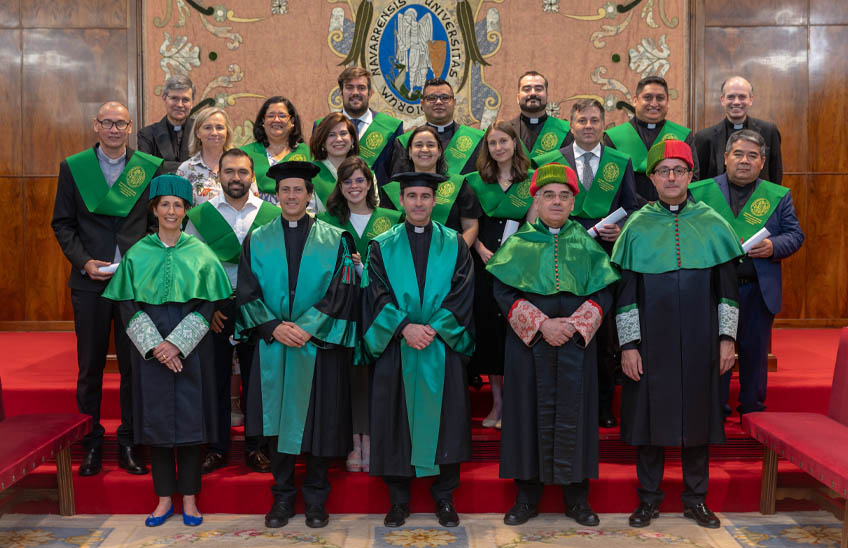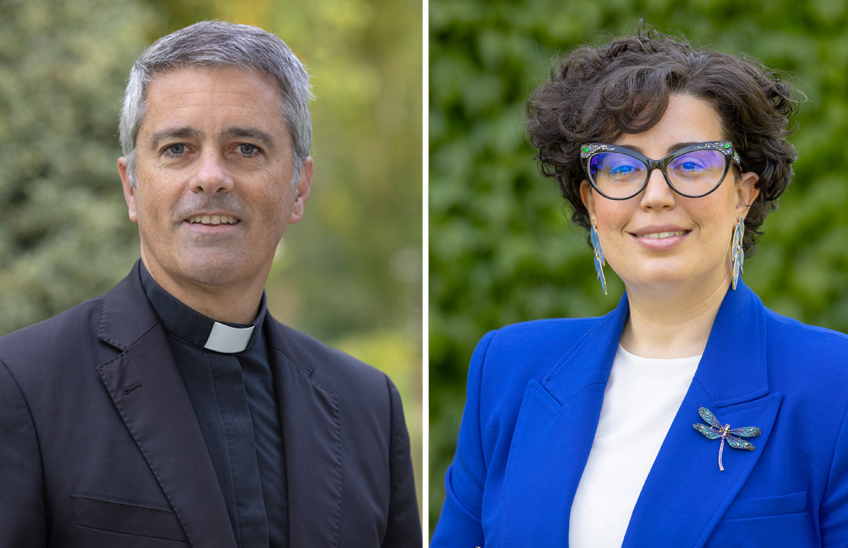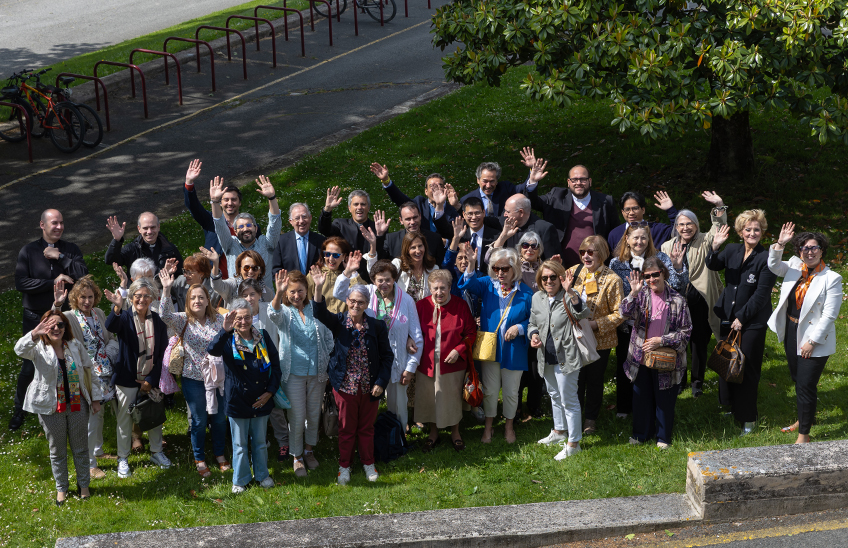Luis Navarro: "The ecclesial movements are a richness that reflects the life of the Church".
The Canon Law expert participated in the XVII International Symposium of the Martín de Azpilcueta Institute at the University of Navarra.

FotoManuelCastells/Professor Luis Navarro during his speech.
21 | 11 | 2025
"The ecclesial movements are a richness that reflects the life of the Church," said Luis Navarro, an expert in Canon Law and professor at the Pontifical University of Santa Croce (Rome), at the University of Navarra. His statements are part of the XVII International Symposium of the Martín de Azpilcueta graduate Institute 'Freedom as a juridical good in the Church. Hierarchical and charismatic gifts in canonical reflection'.
Professor Navarro focused his discussion paper on 'The scope of the freedom of association in the Church: What integration of associations and movements in the dioceses? He explained that for a fruitful integration of movements in diocesan life, the criteria of ecclesiality that the magisterium has been developing must be applied, such as adherence to the faith and teaching of the Church, knowledge of doctrine, missionary capacity, sacramental life, and effective communion with the Pope and the bishop. In this regard, he mentioned the 2016 letter of the Congregation for the Doctrine of the Faith, Iuvenescit Ecclesia, in which, after recalling the aforementioned criteria, it indicates that their application must always respect the proper nature of each charism.
Asked how the balance between the autonomy of the ecclesial movements and communion with the Church should be, he pointed out that it depends on training and dialogue. For Prof. Navarro, the core topic is to know well the nature of each charism and to love it in order to know how to accompany it. In this sense he said that, more than regulating, "the Church needs to cultivate a climate of mutual trust", where the authority can value them and at the same time the movements live with conviction their insertion in the diocesan life.
Three conference for reflection on freedom, authority and communion in the Church
The symposium began on Wednesday, November 19 with the first session, 'Freedom, Authority and Charisms in the Church'. Petar Popovic (Pontificia Università della Santa Croce, Rome) opened the workshop with a exhibition on 'Fundamental rights concerning the freedom of the faithful. Their place in canonical reflection and in the current praxis of government'. He was followed by Arturo Cattaneo (Facoltà di Teologia di Lugano), who spoke on 'The canonical integration of the gifts of freedom, hierarchical gifts and charismatic gifts', and Andrea Bettetini (Università Cattolica del Sacro Cuore, Milan), who analyzed the 'Origin, usefulness and shortcomings of the distinction between public and private in Canon Law'.
In the afternoon, Jorge Otaduy (University of Navarra) and Luis Navarro (Pontificia Università della Santa Croce, Rome) spoke on 'Criteria of ecclesiality and criteria for the grade of associations of the faithful as public or private' and 'The scope of freedom of association in the Church: What integration of associations and movements in the dioceses'.
Thursday the 20th opened with the second session, 'Manifestations of freedom in the communion of the Church'. Beatrice Serra (Università La Sapienza, Rome) reflected on ' catechesis and the principle of subsidiarity: pastoral plans, schools, movements and patria potestas'; Costantino Fabris (Università Roma Tre) dealt with 'Freedom to evangelize and to give and receive training, staff or in association'; and Gabriela Eisenring (Facoltà di Teologia di Lugano) spoke on 'Freedom of teaching. Catholic and Christian-inspired schools'. In the afternoon, Elisa Lisiero (Pontificia Università della Santa Croce, Rome) gave a discussion paper on 'Freedom within associations and movements'.
The third session, 'The service of authority to freedom in the Church', began on Thursday 20th in the afternoon with the intervention of Antonio Viana (University of Navarra), on 'The vigilance of authority as a service, stimulus and guarantee of the juridical good of freedom in the Church. Instruments of vigilance'. It continued on Friday 21 with the discussion paper by Jesús Miñambres (Pontificia Università della Santa Croce, Rome), who spoke on 'Vigilance and autonomy in the management of goods at the service of the mission statement of the Church'. And concluded with Matteo Visioli (Pontificia Università Gregoriana, Rome) who explained 'The penal guarantee of freedom: the crime of abuse of authority (c. 1378 § 1) and others. the penal guarantee of freedom and the crime of abuse of authority'.



